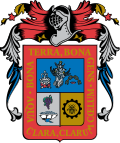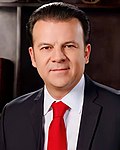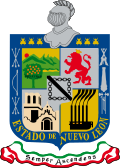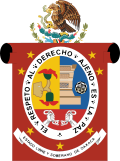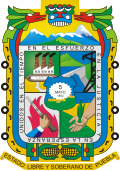
 |
|---|
The United Mexican States, commonly known as Mexico, is a federation comprising thirty-two federal entities. The Head of Government of Mexico City is not considered a governorship, but the position has the rank of a governorship and is included on this list of governors for completeness. Article 115 of the current Federal Constitution states that, for their internal government, the states shall adopt the republican, representative, democratic, secular, and popular form of government, with the free municipality as the basis of their territorial division and political and administrative organization. The election of governors of the states and the local legislatures shall be direct and in the manner prescribed by their respective electoral laws.
Contents
State governors serve six-year terms. Like the President of Mexico, they are barred from seeking reelection; no one who has previously held a governorship may run for or serve in the post again, even on a caretaker basis. Candidates for governor must be Mexican citizens by birth and either a state native or a state resident for at least five years before election day, per Article 116 Part I of the constitution. [1]
Including the Head of Government of Mexico City, 23 governorships are held by the National Regeneration Movement (Morena). Four governors are members of the National Action Party, two are members of the Institutional Revolutionary Party, two are members of the Citizens' Movement, and one is from the Ecologist Green Party of Mexico.
